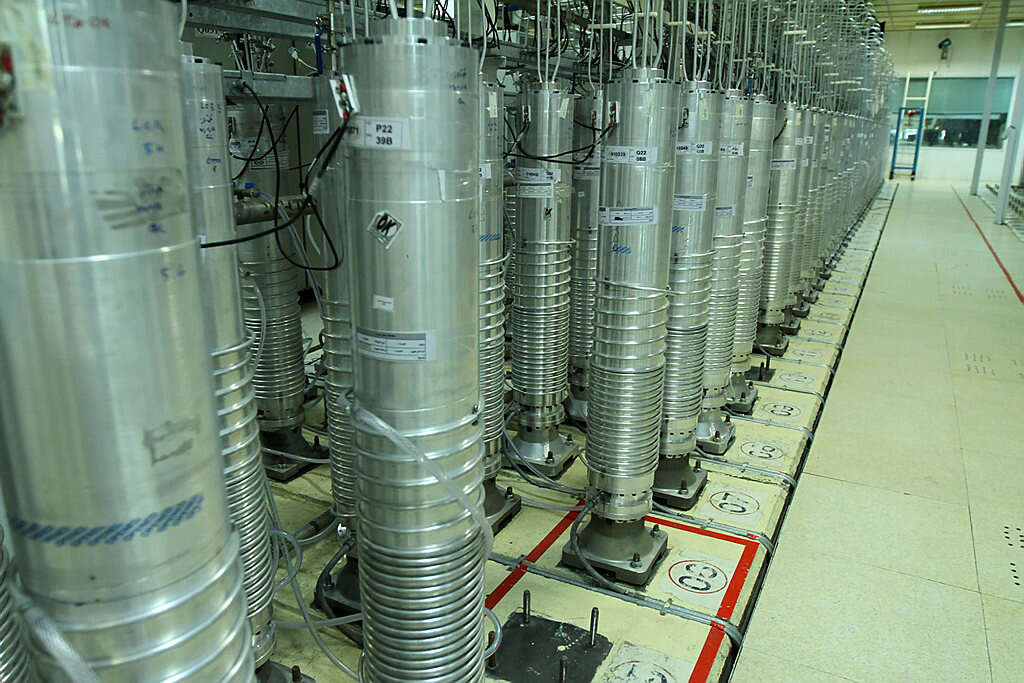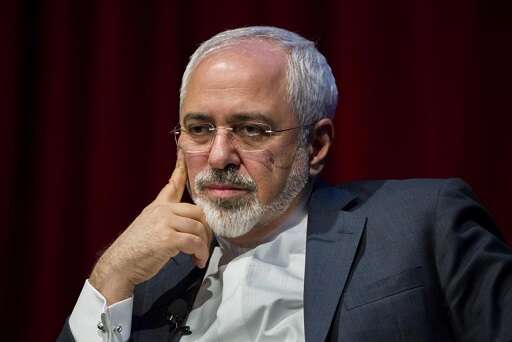Iran's top diplomat said on Tuesday that the attack on the Natanz nuclear facility by Israel was a "very bad gamble" which will strengthen Tehran's hand in talks with major powers to revive the 2015 nuclear deal.
Follow Israel Hayom on Facebook and Twitter
"I assure you that in near future more advanced uranium enrichment centrifuges will be placed in the Natanz facility," Iranian Foreign Minister Mohammad Javad Zarif said in a joint news conference with his Russian counterpart in Tehran.
Iran has accused arch-foe Israel of sabotaging its key Natanz nuclear site on Sunday and has vowed revenge for the attack.
"The Israelis thought the attack will weaken our hand in the Vienna talks but, on the contrary, it will strengthen our position," Zarif said.
US President Joe Biden has said Tehran must resume full compliance with restrictions on its nuclear activity under the deal before Washington can rejoin the pact.
Iran and the remaining parties to the deal will resume talks in Vienna on Wednesday.

Washington has suggested that it might be willing to ease some sanctions imposed on Iran beyond those whose removal was mandated by the original nuclear deal. But Iran insists that all sanctions should be lifted at once.
"The United States should know that neither sanctions nor sabotage will give them the means to negotiate, and that they will only make the situation more difficult for them," Zarif said.
The White House said on Monday the United States was not involved in Sunday's attack and had no comment on speculation about the cause of the incident.
"The US was not involved in any manner," White House press secretary Jen Psaki said in response to questions. "We have nothing to add on speculation about the causes or the impacts."
Iranian government spokesman Ali Rabiei was quoted by state media as saying that "Sunday's sabotage occurred in a power cable duct leading to the centrifuge machines. This was not an external attack and the location of the sabotage has been clearly determined."
Rabiei appeared to be referring to a person the Iranian authorities have said caused the electricity outage at Natanz and whose arrest is being sought. Rabiei said the damage caused could be quickly repaired.
Rabiei also warned that Iran's retaliation would come "on the enemy's soil" and that Iran had "strong evidence the Zionists were involved in the attack."
Kayhan, a hard-line Tehran newspaper, urged Iran to "walk out of the Vienna talks, suspend all nuclear commitments, retaliate against Israel, and identify and dismantle the domestic infiltration network behind the sabotage."
"Despite evidence that shows the role of the US as main instigator of nuclear sabotage against Iran, unfortunately, some statesmen, by purging the US of responsibility, [aid] Washington's crimes against the people of Iran," the paper said in Tuesday's editions.
"What happened in Natanz makes it possible for Iran to legally do whatever it takes to ... compensate for this terrorist stupidity," added Zarif. "I assure you that in near future, the Natanz site will move forward with more advanced centrifuges."

Earlier Tuesday, the New York Times cited an unnamed intelligence source who said an explosive device was smuggled into Natanz and was remotely activated.
Sunday's explosion at Natanz was so damaging that it disabled the facility's main and backup electric systems, the source told the NY Times.
The blast also occurred the same morning that US Secretary of Defense Lloyd Austin landed in Israel for a two-day visit.
As a reminder, an intelligence source on Monday was quoted as saying the damage caused to the facility would stall Iran's nuclear program by around nine months.
Channel 13 News on Monday also reported that an explosive device had been placed near the main electricity line and was detonated in the early morning hours of April 11, shutting down the entire facility.
While the Iranians did not acknowledge the details of the report, remarks by the head of the Atomic Energy Organization of Iran hinted at their authenticity.
"The scheme of the enemy was very nice. I look at it from a scientific viewpoint. They thought about it, used their experts and planned the explosion in a way that both the main power and the power cord will get damaged," Fereydoon Abbasi-Davani told Iran's State TV.
Subscribe to Israel Hayom's daily newsletter and never miss our top stories!




